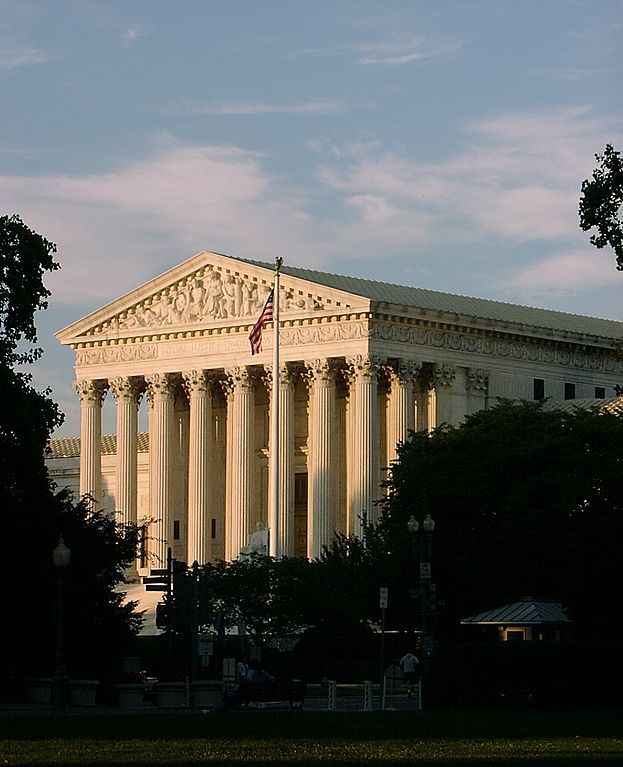
A confused world desperately craves to know where I stand on the 6-3 decision handed down this morning by the Supreme Court of the United States:
And I live to serve. So here goes:
I’m a conservative, but I’m a conservative who leans libertarian (especially, but not solely, on economic issues). I’m also a strong federalist. So, on the whole, the notion of federal anti-discrimination laws doesn’t sit well with me.
And, before someone raises the issue, yes, I do believe that discrimination against Latter-day Saints should be legal. Would I consider it boorish and unfair and even immoral? Yes. Worthy of a boycott? Yes. Irritating and offensive? Yes. But legal.
However, it should be pointed out that my rather libertarian principles would also have prohibited Jim Crow laws, state-enforced segregation, and — needless to say — human slavery.
And, once more before somebody raises the issue, I hold my more or less libertarian position quite separately from my being a Latter-day Saint. My political and economic views are, in my judgment, consistent with my religious views — I wouldn’t hold them if I thought otherwise — but I don’t believe that my specific political and economic views are entailed by my faith. The other day, one regularly-mistaken critic rather oddly suggested that I’m essentially on the same page as the late Ayn Rand, except (he allowed) for her atheism (no small difference!). But this is false: I’ve never shared either her rejection of altruism or her belief in “the virtue of selfishness.” (Incidentally, contrary to his confident assertion, I certainly don’t fault her writing merely because she was a woman.)
But we don’t live in a libertarian country, and we probably never will. So, given the realities, and knowing that civil rights laws and such are the environment in which we really live and move and have our being — I am, as I say, a libertarian-leaning conservative — what do I make specifically of today’s SCOTUS decision?
I still have concerns. I have concerns because I’m a strict-constructionist, an originalist. I believe that original legislative intent must guide in the interpretation of laws. Otherwise, judicial rulings will be relatively arbitrary, whimsical, subject to the vagaries of current ideological fashion and untethered to actual statutes. A government not of laws but of men. Regardless of the particular substantive merits or demerits of this morning’s ruling, however, I also share Justice Samuel Alito’s reservations about it — which were likewise those of Justices Thomas and Kavanaugh and of Senator Mike Lee, as of Senators Mitt Romney, and Josh Hawley — based on the constitutional separation of powers. From the Deseret News article:
“If the court takes this up and interprets (Title VII) to prohibit discrimination based on sexual orientation, we will be acting exactly like a legislature,” Justice Samuel Alito said during oral arguments. . . .
Alito filed a dissenting opinion joined by Justice Clarence Thomas. Justice Brett Kavanaugh filed a separate dissent. All three justices argued that, in changing how civil rights law will be applied moving forward, the court is acting like Congress.
“There is only one word for what the court has done today: legislation,” Alito wrote, highlighting congressional efforts to add sexual orientation and gender identity protections to the Civil Rights Act.
Sen. Mike Lee, R-Utah, tweeted Monday that he shares Alito’s concerns.
I also worry about potential damage to religious liberty:
Friend of the Court Brief from Brigham Young University and Other Religious Colleges
So now you have some idea, at least, of how I feel about today’s Supreme Court decision.










